Opening Keynote Speaker
3.40pm Wednesday November 8, 2023
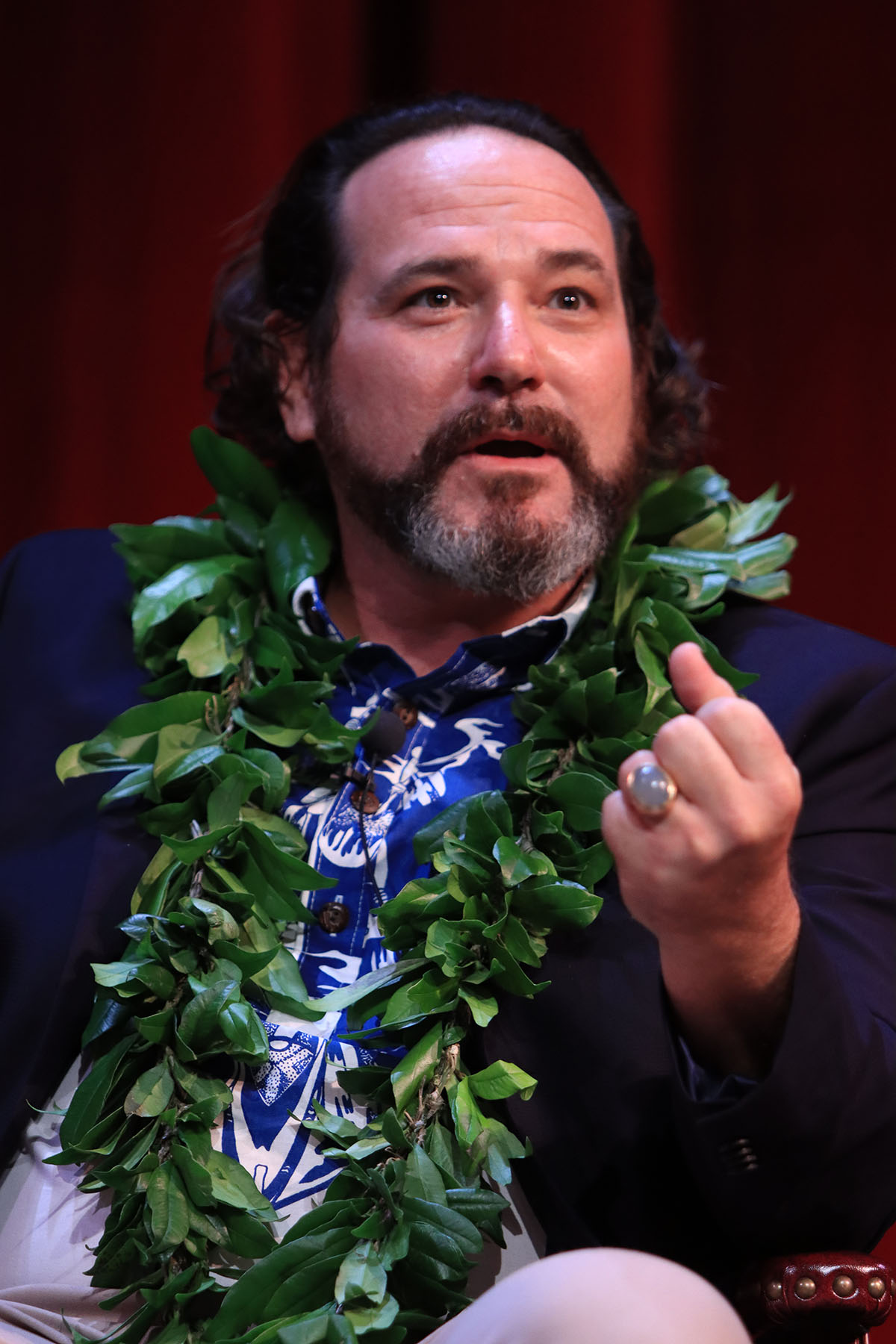 Dr. Kamanamaikalani Beamer is a full professor and the inaugural Dana Naone Hall Endowed Chair in Hawaiian Studies, Literature, & the Environment at Hawaiʻinuiākea School of Hawaiian Knowledge at the University of Hawaiʻi, Mānoa. He serves a dual appointment in the Hawaiʻinuiākea School of Hawaiian Knowledge and in the William S. Richardson School of Law as part of Ka Huli Ao Center for Excellence in Native Hawaiian Law. Dr. Beamer has multiple publications in the study of aloha ʻāina and the Circular Economy (CE). His books include No Mākou Ka Mana: Liberating the Nation (2014) and Islands & Cultures: How Pacific Islands Provide Paths Toward Sustainability (2022).In 2021, he concluded two consecutive terms as a Commissioner on the Hawaiʻi State Water Resource Management Commission. After eight years of service, his accomplishments include restoring water to forty-five streams across Hawaiʻi and challenging the U.S. Navy on issues at Red Hill. In addition to his academic and government service, Dr. Beamer is a father, organizer, and activist in movements to advance aloha ʻāina and water justice.
Dr. Kamanamaikalani Beamer is a full professor and the inaugural Dana Naone Hall Endowed Chair in Hawaiian Studies, Literature, & the Environment at Hawaiʻinuiākea School of Hawaiian Knowledge at the University of Hawaiʻi, Mānoa. He serves a dual appointment in the Hawaiʻinuiākea School of Hawaiian Knowledge and in the William S. Richardson School of Law as part of Ka Huli Ao Center for Excellence in Native Hawaiian Law. Dr. Beamer has multiple publications in the study of aloha ʻāina and the Circular Economy (CE). His books include No Mākou Ka Mana: Liberating the Nation (2014) and Islands & Cultures: How Pacific Islands Provide Paths Toward Sustainability (2022).In 2021, he concluded two consecutive terms as a Commissioner on the Hawaiʻi State Water Resource Management Commission. After eight years of service, his accomplishments include restoring water to forty-five streams across Hawaiʻi and challenging the U.S. Navy on issues at Red Hill. In addition to his academic and government service, Dr. Beamer is a father, organizer, and activist in movements to advance aloha ʻāina and water justice.
Special plenary
10:40am Thursday November 9, 2023
Aloha 'Āina: Hawaiian Knowledge Today
Presidential plenary entitled Aloha 'Āina: Hawaiian Knowledge Today will be held on November 9 (Thursday) 10:40-12:30 with the following speakers.
Plenary Speakers
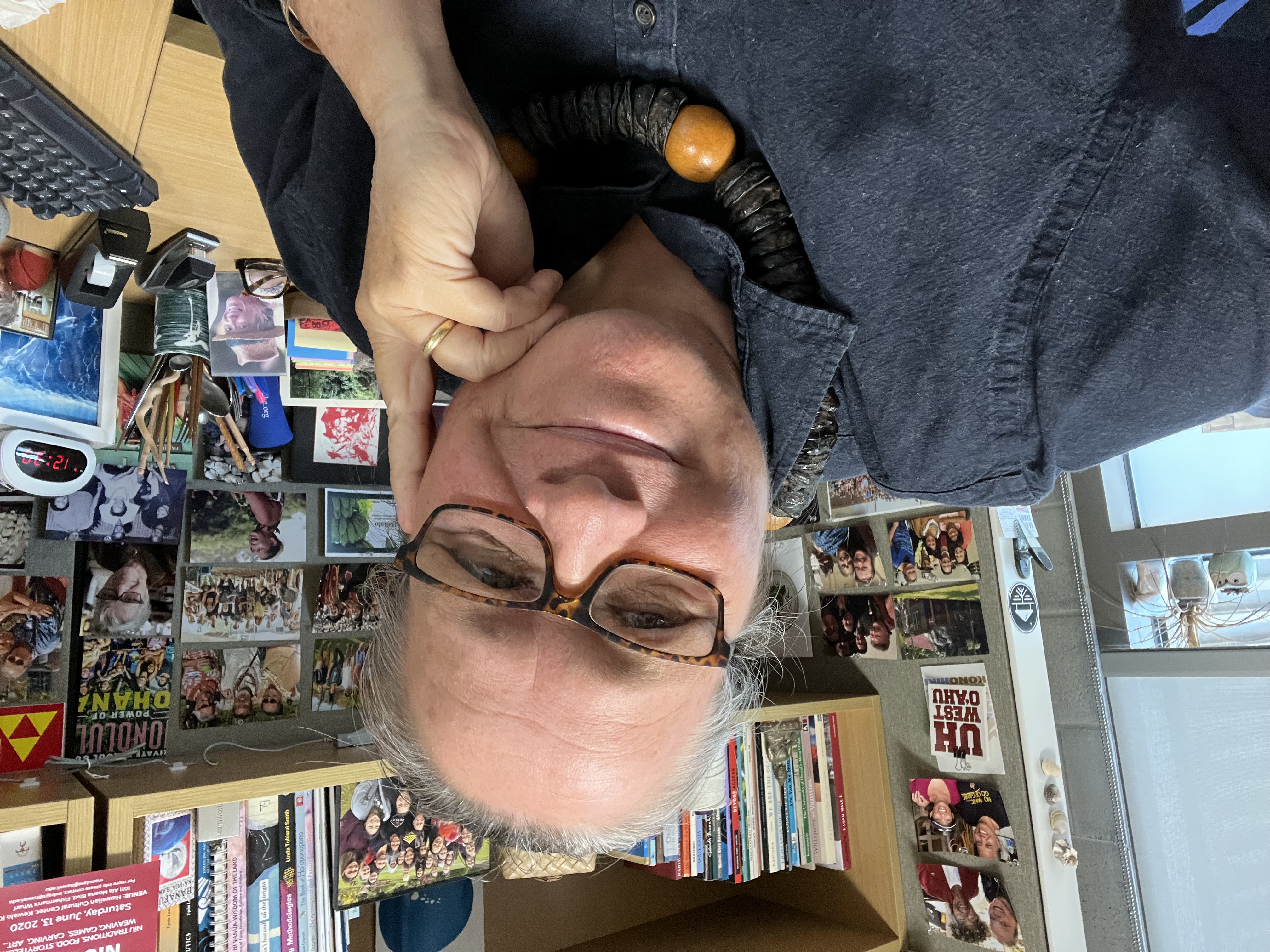 Manulani Aluli Meyer is the fifth daughter of Emma Aluli and Harry Meyer. She comes from Mokapu, Kailua and Hilo Palikū on the islands of Oahu and Moku o Keawe (Hawaii Island). Manuʻs ʻohana is dedicated to ʻike kupuna, Hawaiian ancestral knowledge, within all facets of society and education. Manu works in the field of Indigenous epistemology and its role in world-wide awakening. Aunty Manu is a haku ho'oponopono (restorative justice practitioner) who is also dedicated to food security via ʻike niu (coconut knowledge) and the replanting of uluniu (coconut groves).
Manulani Aluli Meyer is the fifth daughter of Emma Aluli and Harry Meyer. She comes from Mokapu, Kailua and Hilo Palikū on the islands of Oahu and Moku o Keawe (Hawaii Island). Manuʻs ʻohana is dedicated to ʻike kupuna, Hawaiian ancestral knowledge, within all facets of society and education. Manu works in the field of Indigenous epistemology and its role in world-wide awakening. Aunty Manu is a haku ho'oponopono (restorative justice practitioner) who is also dedicated to food security via ʻike niu (coconut knowledge) and the replanting of uluniu (coconut groves).
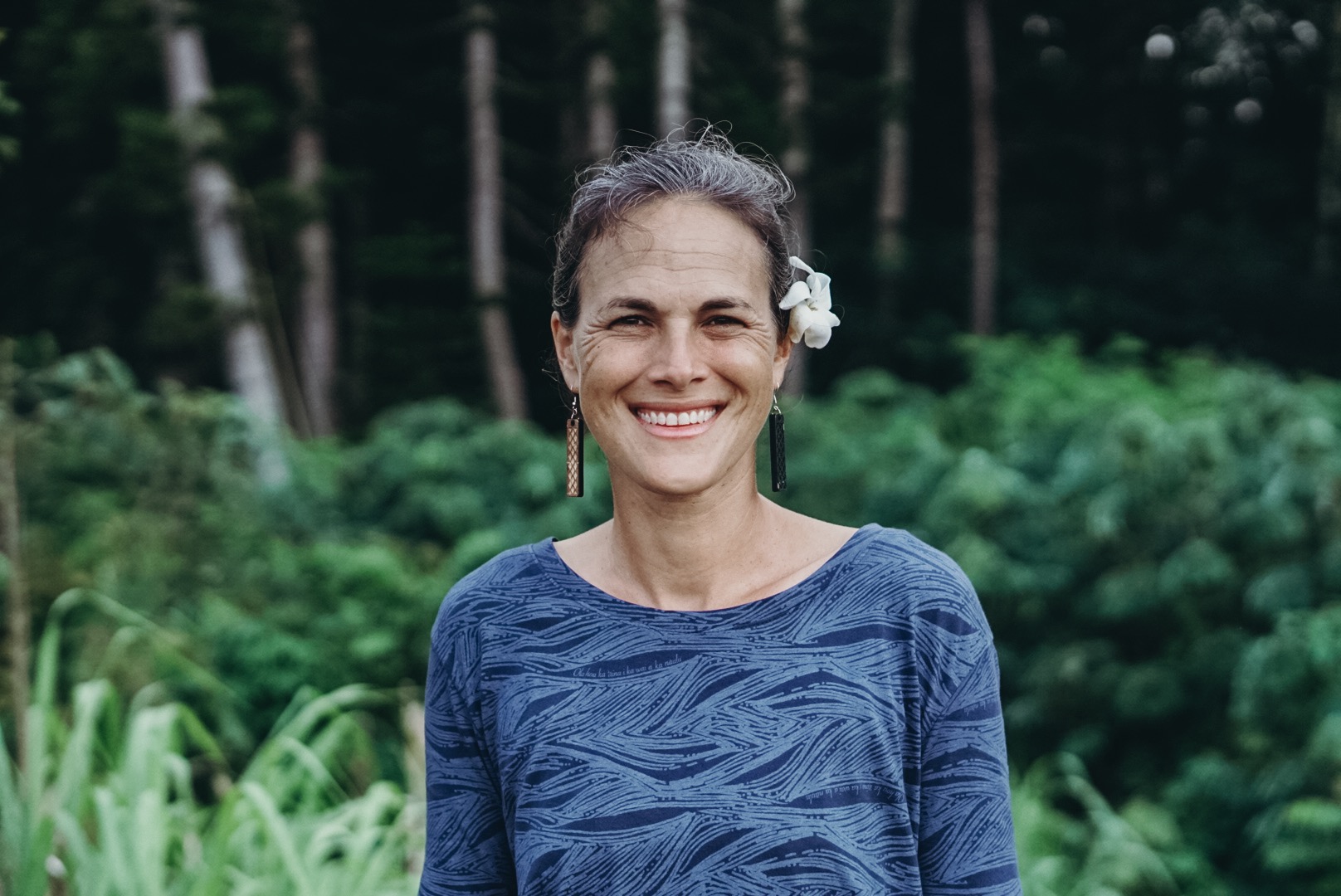 Mehana Blaich Vaughan grew up where the moku of Haleleʻa and Koʻolau meet on the island of Kauaʻi. She is the mother of three children. She is an Assistant Professor in the Department of Natural Resources and Environmental Management, Sea Grant College Program and Hui ʻĀina Momona at the University of Hawaiʻi at Mānoa. Her research focuses on peopleʻs relationships with the places they care about and she works to enhance community ability to mālama ʻāina, as well as for restoration of land to our Hawaiian lāhui. For over ten years, Mehana taught middle and high school and worked on developing place-based education programs with Kaua‘i community groups. Mehana is grateful to her Tūtū and all of her ‘ohana, as well as the friends, students, and community members who have shaped her work.
Mehana Blaich Vaughan grew up where the moku of Haleleʻa and Koʻolau meet on the island of Kauaʻi. She is the mother of three children. She is an Assistant Professor in the Department of Natural Resources and Environmental Management, Sea Grant College Program and Hui ʻĀina Momona at the University of Hawaiʻi at Mānoa. Her research focuses on peopleʻs relationships with the places they care about and she works to enhance community ability to mālama ʻāina, as well as for restoration of land to our Hawaiian lāhui. For over ten years, Mehana taught middle and high school and worked on developing place-based education programs with Kaua‘i community groups. Mehana is grateful to her Tūtū and all of her ‘ohana, as well as the friends, students, and community members who have shaped her work.
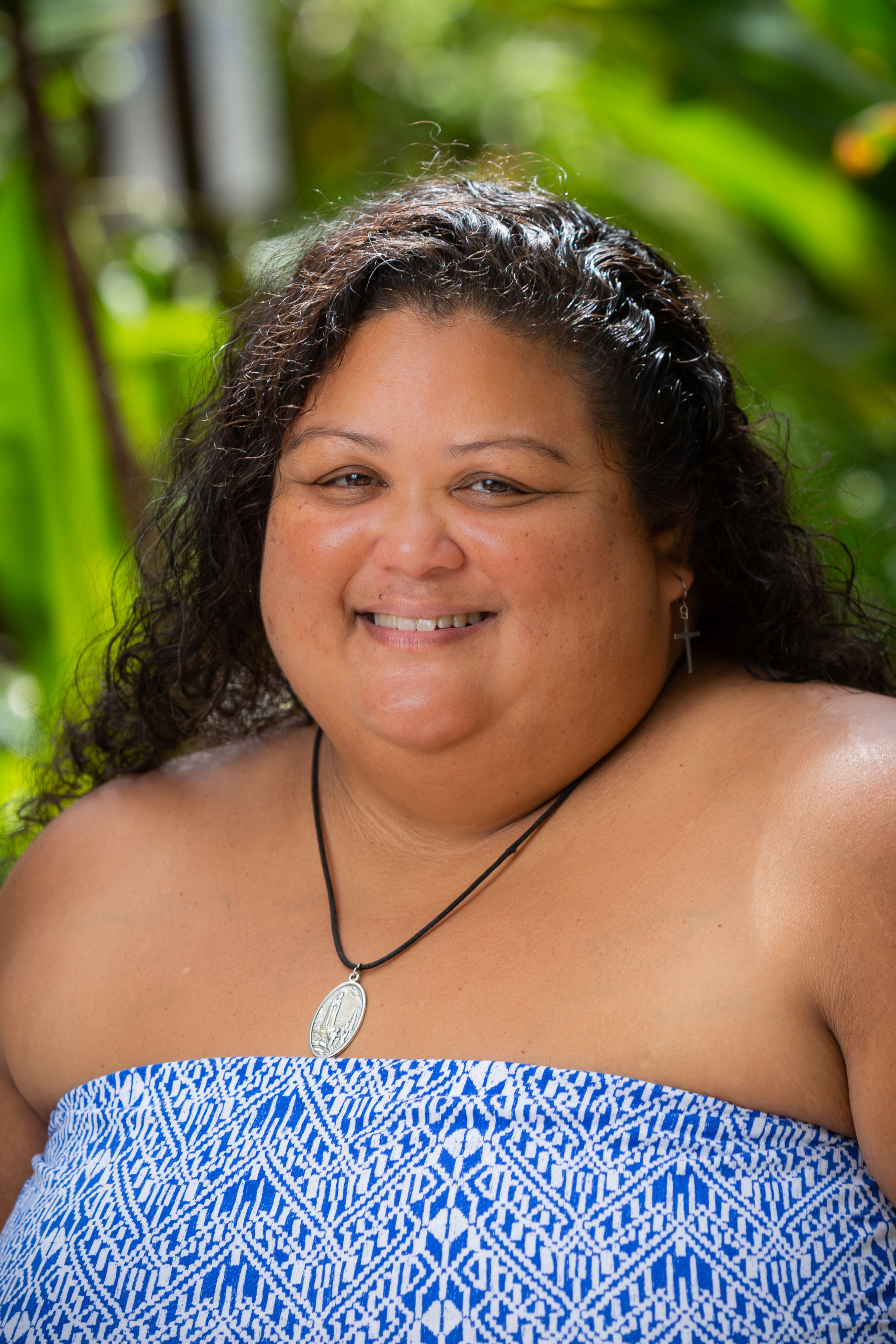 Malia Akutagawa was born and raised on Molokaʻi. At a young age she was influenced by her mākua and kūpuna, leaders in the early aloha ʻāina movement. She is a Native Hawaiian Rights and Environmental Law attorney with experience in Hawaiian access, gathering, burial, land use, and water rights issues. She is an Associate Professor at the Hawai‘inuiākea School of Hawaiian Knowledge – Kamakakūokalani Center for Hawaiian Studies and the William S. Richardson School of Law – Ka Huli Ao Center for Excellence in Native Hawaiian Law. Malia is part of Hui ‘Āina Momona, a consortium of scholars throughout the university community charged with addressing compelling issues of Indigenous Hawaiian knowledge and practices. Malia has dedicated much of her efforts to conflict resolution, utilizing principles of hoʻoponopono, and creating greater parity for Kānaka Maoli seeking to protect ʻāina and Native rights. To this end, she works with and trains government agencies, legislators, environmental court judges, and conservation enforcement officers
Malia Akutagawa was born and raised on Molokaʻi. At a young age she was influenced by her mākua and kūpuna, leaders in the early aloha ʻāina movement. She is a Native Hawaiian Rights and Environmental Law attorney with experience in Hawaiian access, gathering, burial, land use, and water rights issues. She is an Associate Professor at the Hawai‘inuiākea School of Hawaiian Knowledge – Kamakakūokalani Center for Hawaiian Studies and the William S. Richardson School of Law – Ka Huli Ao Center for Excellence in Native Hawaiian Law. Malia is part of Hui ‘Āina Momona, a consortium of scholars throughout the university community charged with addressing compelling issues of Indigenous Hawaiian knowledge and practices. Malia has dedicated much of her efforts to conflict resolution, utilizing principles of hoʻoponopono, and creating greater parity for Kānaka Maoli seeking to protect ʻāina and Native rights. To this end, she works with and trains government agencies, legislators, environmental court judges, and conservation enforcement officers
Presidential Plenary
10:40am Friday November 10, 2023
Hili Naʻi Hili Hewa: On Fantasies, Broken Things and the redistribution of epistemic authority
In this plenary conversation, a philosopher, an activist geographer, and an ecohydrologist share their work to cultivate Kānaka ‘Ōiwi flourishing amidst the continuing legacies of US imperialism and militarism, legacies that include the dominant structures of academia. Struggles of colonial control and capture dominate attempts to ameliorate the toxic effects of pollution, militarism and tourism. Kānaka ‘Ōiwi and allied scholars mobilize decolonial scientific practices and Hawaiian knowledge to build new worlds that challenge and subvert the white gaze and structures of power. Different futures can emerge in spaces where colonial occupation of sea, sky, land and ecologies of knowledge are interrupted.
Plenary Speakers
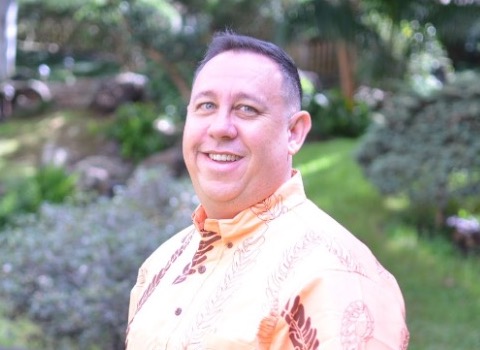 Bruce Kaʻimi Watson. Aloha. I am from the island of Oʻahu, my family lives in the valley of Pālolo and I spend much time in the Tuahine rain that falls upon the university in Mānoa. I am Bruce Kaʻimi Watson. He mea ʻimi i nā mea e hiki ke ʻimi aku ai, an ʻŌiwi philosopher and historian in an occupied nation. My research swims in the areas of ʻŌiwi philosophy as captured in moʻolelo and the history of Hawaiʻi, especially the history of education. My current research projects focus on agnotology in a Hawaiʻi and Pacific context, haole ignorance.
Bruce Kaʻimi Watson. Aloha. I am from the island of Oʻahu, my family lives in the valley of Pālolo and I spend much time in the Tuahine rain that falls upon the university in Mānoa. I am Bruce Kaʻimi Watson. He mea ʻimi i nā mea e hiki ke ʻimi aku ai, an ʻŌiwi philosopher and historian in an occupied nation. My research swims in the areas of ʻŌiwi philosophy as captured in moʻolelo and the history of Hawaiʻi, especially the history of education. My current research projects focus on agnotology in a Hawaiʻi and Pacific context, haole ignorance.
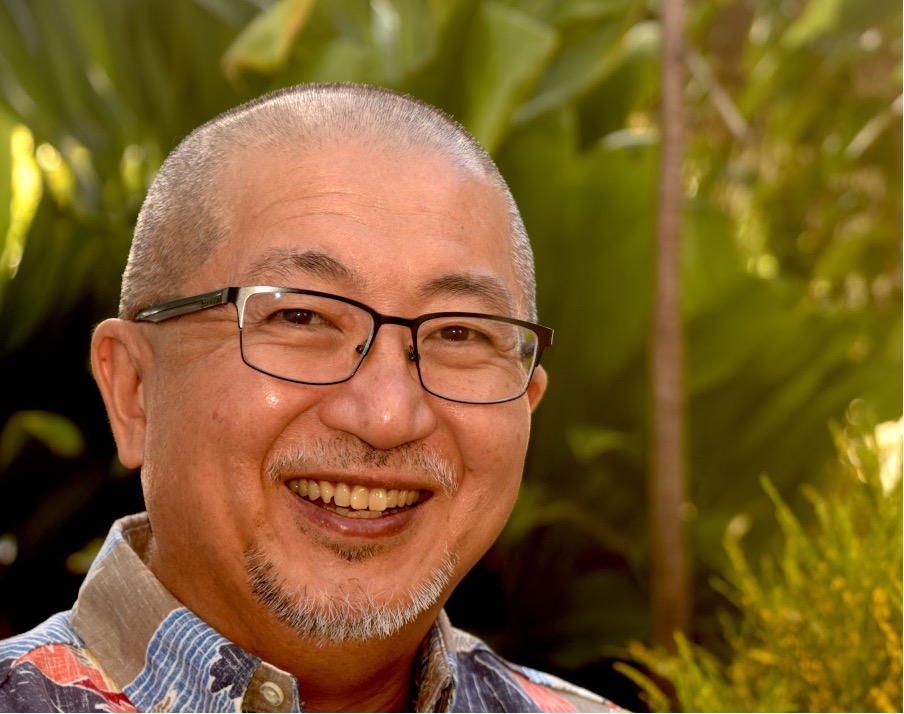 Kyle Kajihiro, Ph.D. is an Assistant Professor of Ethnic Studies at the University of Hawaiʻi at Mānoa, where he earned his doctorate in Geography. In 2020-21, Dr. Kajihiro was an American Council of Learned Societies Emerging Voices fellow at the Institute for Research in the Humanities at the University of Wisconsin Madison. His research interests include the political geography and political ecology of U.S. imperialism and militarism in Hawaiʻi and the Pacific region, Indigenous, decolonial, and counter-militarization social movements, and critical land- and culture-based pedagogies for creating archipelagic solidarities. He formerly directed the American Friends Service Committee Hawaiʻi Area Program. As a board member of Hawaiʻi Peace and Justice, he works with communities in Hawaiʻi and around the Pacific region to counter militarism and environmental injustice and leads the Hawaiʻi DeTours Project.
Kyle Kajihiro, Ph.D. is an Assistant Professor of Ethnic Studies at the University of Hawaiʻi at Mānoa, where he earned his doctorate in Geography. In 2020-21, Dr. Kajihiro was an American Council of Learned Societies Emerging Voices fellow at the Institute for Research in the Humanities at the University of Wisconsin Madison. His research interests include the political geography and political ecology of U.S. imperialism and militarism in Hawaiʻi and the Pacific region, Indigenous, decolonial, and counter-militarization social movements, and critical land- and culture-based pedagogies for creating archipelagic solidarities. He formerly directed the American Friends Service Committee Hawaiʻi Area Program. As a board member of Hawaiʻi Peace and Justice, he works with communities in Hawaiʻi and around the Pacific region to counter militarism and environmental injustice and leads the Hawaiʻi DeTours Project.
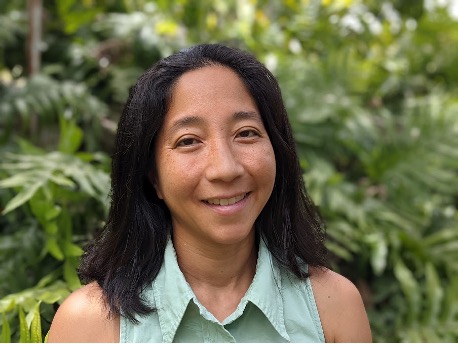 Aurora Kagawa-Viviani is an assistant professor with the University of Hawaiʻi at Mānoa’s Water Resources Research Center and Department of Geography and Environment and currently serves on the Hawaiʻi Commission on Water Resource Management. She applies the lens of change to study how plant and human communities are affected by- and affect-hydrologic processes. Her research focuses on vegetation-water interactions and the ecohydrology of biotic invasion and ecological restoration, with a growing emphasis understanding on urban ecosystems and waterscapes through community science ("citizen science") and collaborations with social scientists at the intersection of socio-hydrology and hydrosocial paradigms. Her current challenge is wrestling with ways to better engage the aspirations of local communities to drive rigorous and novel research in the transdisciplinary space encompassing plants, water, and people.
Aurora Kagawa-Viviani is an assistant professor with the University of Hawaiʻi at Mānoa’s Water Resources Research Center and Department of Geography and Environment and currently serves on the Hawaiʻi Commission on Water Resource Management. She applies the lens of change to study how plant and human communities are affected by- and affect-hydrologic processes. Her research focuses on vegetation-water interactions and the ecohydrology of biotic invasion and ecological restoration, with a growing emphasis understanding on urban ecosystems and waterscapes through community science ("citizen science") and collaborations with social scientists at the intersection of socio-hydrology and hydrosocial paradigms. Her current challenge is wrestling with ways to better engage the aspirations of local communities to drive rigorous and novel research in the transdisciplinary space encompassing plants, water, and people.








